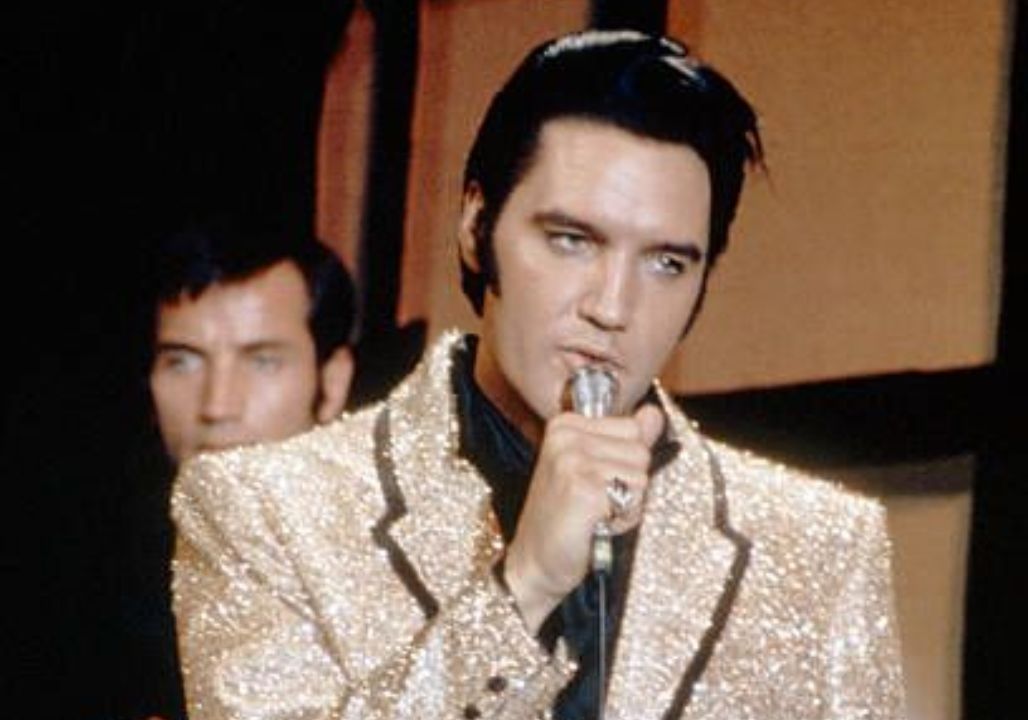
The hospital room was oppressively quiet—a stark contrast to the roaring stadiums that once echoed with the King’s voice. Under the dim, humming fluorescent lights, Elvis Presley, the boy from Tupelo who revolutionized music as the King of Rock and Roll, was locked in his most profound combat: not with critics nor adoring crowds, but against the relentless march of time itself. Lingering in the silence was a chilling question that no one dared to answer aloud:
How does a legend prepare for goodbye?
To grasp the weight of this moment, we must rewind and remember how it all began. Elvis was not born into wealth or privilege but was raised in the depths of poverty within a tiny shotgun house in Mississippi. His upbringing was humble, but rich in love from his parents and an unyielding passion for music. From the solemn hymns of the church pews to the soulful blues on Memphis’s Beale Street, young Elvis absorbed melodies that defied race and class boundaries. When he first stepped into Sun Records in 1953 to record a song for his mother, nobody foresaw that he was igniting a revolution in music history.
His rise was nothing short of meteoric. One day, he was a truck driver; the next, a magnetic figure whose swiveling hips scandalized television sets and whose electrifying voice thrilled millions. More than mere entertainment, Elvis embodied a cultural upheaval, becoming the living pulse of America’s seismic identity shift throughout the 1950s and 1960s. Yet behind the glitz lay a man fragile and vulnerable. Fame showered adulation but silently bred a storm of isolation, mounting pressure, and crushing expectations.
The tragic loss of his beloved mother, Gladys, in 1958 was the turning point that shattered Elvis’s soul. She was his anchor, his constant guardian; without her, the boy inside him was never the same. Grieving deeply, he carried that shadow with him like a haunting specter for the rest of his life. Pills entered his regimen—first to aid sleep, then to dull the relentless ache—as the world’s demands grew heavier than any one man could bear.
Yet Elvis kept delivering. The landmark 1968 “Comeback Special” reignited his raw, shimmering fire. Draped in black leather and armed with his guitar, he reclaimed his throne, emphatically proving the King was far from dethroned. Still, every victory exacted a toll. Under the tight grip of Colonel Tom Parker, his manager, Elvis was shackled to an unyielding treadmill of performances and contracts that stifled his dream of worldwide tours. The 1970s brought iconic Las Vegas residencies, but also spiraling dependence on medication and a health in steady decline.
By 1977, Elvis was a shadow of the man who once electrified the world. On stage, he transformed yet again, a fragile figure whose voice defied his failing body to soar with fierce defiance. When news broke on August 16th, 1977, that Elvis Presley had passed away at the tender age of 42, the world collectively held its breath. For millions, it felt as though music itself had ceased to exist.
Death, however, was not the finale. Graceland blossomed into a sacred shrine, his music fueled generations of artists, from the Beatles to today’s stars. What remains eternal, beyond the legend, is the raw humanity behind it all—his battles, vulnerabilities, and the relentless courage to pour every ounce of himself into every performance.
Elvis Presley was far more than the King of Rock and Roll. He was a son, a father, a dreamer, a man yearning for peace amid the chaos. His life story is a poignant reminder that even greatness carries a burden, and that true legacy is shaped not by perfection, but by the radiance of the light one leaves behind. Decades onward, Elvis’s light continues to burn brightly, a beacon of both brilliance and fragile humanity.
